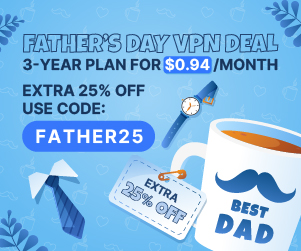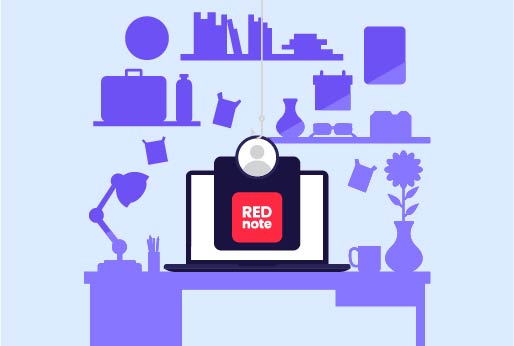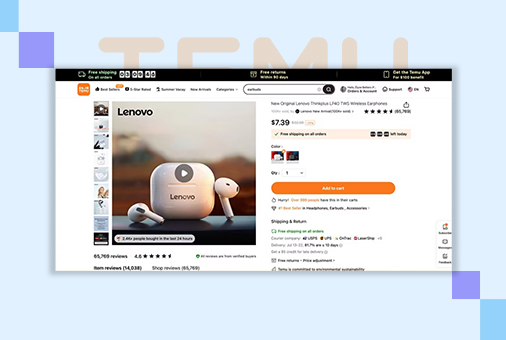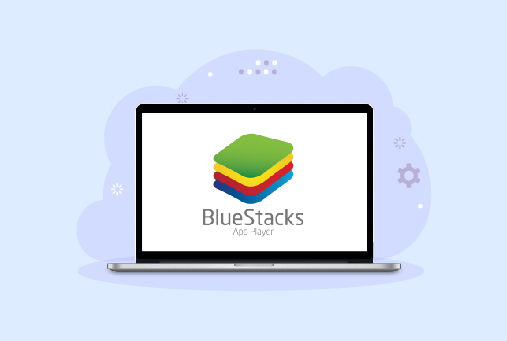
Best Email Service Provider in 2025
Email might feel like old news in the age of DMs and social apps, but let’s be honest, when it comes to business, sign-ups, newsletters, job alerts, or that all-important password reset, email is still king. Whether you’re a freelancer managing clients, a small biz owner running campaigns, or just someone who wants an inbox that doesn’t turn into chaos, choosing the right email service provider makes all the difference.
Every single day, billions of emails zip around the world—some encrypted for privacy nerds, others supercharged with productivity tools or loaded with marketing features. And yes, there are still options out there that are totally free.
So, in this guide, we’re going to talk about what makes a great email service provider, walk you through the top picks for 2025, and help you figure out which one suits your needs, whether it’s bulletproof security, business branding, or just a spam-free zone you can finally breathe in.
Let’s dive in!
Choosing an Email Service Provider: What Matters
Before we jump into specific services, here’s what most people want in an email provider:
- Storage space (how many emails you can keep)
- Security & privacy (is your data safe?)
- Ease of use (simple, friendly interface)
- Extra tools (calendar, cloud storage, filters)
- Custom domain support ([email protected])
- Free vs paid plans (tiers and costs)
Top Email Service Providers of 2025 – At a Glance
Recent guides highlight the most popular and trusted players in 2025:
- Gmail and Outlook top lists for everyday use.
- Privacy‑focused names like ProtonMail, Tuta (Tutanota), and Zoho Mail are favorites for secure email.
- Yahoo Mail, iCloud Mail, and Mail.com offer generous storage or fun extras.
Let’s walk through some of the most user‑friendly options.
1. Gmail (by Google)
Key Features
- 15 GB of free storage shared with Google Drive and Google Photos.
- Smart inbox with tabs (Primary, Social, Promotions).
- Excellent spam protection and clean interface.
- Works seamlessly with Google Docs, Calendar, and Meet.
- Message scheduling, filters, labels.
Pros
- Totally free with generous storage.
- Easy for beginners and integrates with many apps.
- Reliable, fast, and well supported.
Cons
- Not end‑to‑end encrypted—Google can scan emails for ads and data.
- Limited custom domain support unless you pay for Google Workspace.
Pricing
- Free with 15 GB storage.
- Google Workspace (for custom domains and more storage): around $6–10/user/month.
2. Outlook.com (by Microsoft)
Key Features
- 15 GB free storage; integrates with Microsoft 365 tools.
- Focused Inbox feature to organize important emails.
- Add‑on support like Skype, DocuSign.
Pros
- Great for Microsoft users.
- Simple, clean design and good filtering.
- Fast setup and reliable performance.
Cons
- Ads in free version.
- No full end‑to‑end encryption.
Pricing
- Free version ads included.
- Microsoft 365 Personal (adds custom domain, extra storage): starts around $1.99–6/user/month.
3. ProtonMail
Key Features
- Based in Switzerland with end‑to‑end encryption: only you and the recipient can read your messages. Proton can’t decrypt your emails.
- Free plan includes 1 GB storage and daily send limits.
- Paid plans unlock aliases, custom domains, labels, filters, priority support.
Pros
- Industry‑leading privacy and encryption.
- No IP logging and anonymous sign-up.
- Open‑source code for extra confidence.
Cons
- Limited search and storage on free tier.
- Web interface can feel slow or clunky at times.
- Doesn’t support IMAP/POP without paid plan.
Pricing
- Free – 1 GB storage, 150 messages/day.
- Plus plan: about $3.99/month, more storage and features.
- Business plans with custom domains and team mailboxes are higher
4. Tuta (Tutanota)
Key Features
- Germany‑based secure email with end‑to‑end encryption. AES and RSA encryption built in.
- Free users get 1 GB of storage. Paid plan gives aliases and custom domain support.
- Friendly web interface; open source.
Pros
- Strong privacy and data protection under the German GDPR.
- Clean look and easy to use.
- Affordable paid plans (often around €30/year).
Cons
- No IMAP/POP support.
- Importing contacts in bulk is unavailable in free plan.
- Limited free storage.
Pricing
- Free plan: 1 GB and basic features.
- Paid plans: starting around €30/year (~$30) for aliases and domain support.
5. Zoho Mail
Key Features
- 5 GB free storage per user. Includes features like folders, filters, mail organization.
- Works within Zoho’s suite (Docs, Sheets, Calendar).
- Supports custom domains even on free tier (business use).
Pros
- Great value, especially for small businesses and professionals.
- No ads, clean and modern interface.
- Easy teamwork tools across Zoho apps.
Cons
- Free version has limited storage and lacks advanced encryption.
- Interface isn’t as minimal or polished as some others.
Pricing
- Free for up to 5 GB/user.
- Paid plans start at about $1/user/month and go up.
6. Yahoo Mail, iCloud Mail & Mail.com
Yahoo Mail
- 1 TB of storage, disposable addresses, themes.
- Pros: huge storage.
- Cons: ads show up, spam filtering is not as strong.
iCloud Mail
- 5 GB free, built tightly into Apple devices. Simple and clean.
- Pros: seamless for Apple users.
- Cons: very limited to the Apple ecosystem, and low free storage.
Mail.com
- Offers over 100 domain name options (fun or thematic addresses). Two‑factor support, antivirus, and spam filters.
- Pros: customizable email address, extra security steps.
- Cons: Smaller free storage, some features are not yet verified.
Quick Comparison Table
| Provider | Free Storage | Encryption | Custom Domain | Notable Features | Paid Price* |
| Gmail | 15 GB | TLS only | Google Workspace | Google integrations, spam filter | ~$6–10/user/month |
| Outlook.com | 15 GB | TLS only | Microsoft 365 | Focused Inbox, Microsoft tools | ~$2–6/month |
| ProtonMail | 1 GB | End‑to‑end | Yes (paid only) | Privacy, aliases, secure messaging | ~$4/month |
| Tutanota | 1 GB | End‑to‑end | Yes (paid) | Germany/GDPR, aliases | ~$30/year |
| Zoho Mail | 5 GB/user | TLS only | Yes (even free) | Business use, clean interface | ~$1/user/month |
| Yahoo Mail | 1 TB | TLS only | No | Themes, storage | ~$5/month (ad-free) |
| iCloud Mail | 5 GB | TLS only | No | Apple ecosystem integration | Storage plans paid |
| Mail.com | Medium | TLS only | No | Domain variety, antivirus/spam | Paid upgrade options |
*Prices vary and include estimated ranges.
Quick Recommendations: Which Email Service Provider Fits You?
- For everyday use with lots of storage: Go with Gmail or Outlook.
- If you care most about privacy: Choose ProtonMail or Tutanota.
- Running a small business or using your own domain? Try Zoho Mail.
- Want something different or fun? Check out Mail.com or Yahoo Mail.
- Apple user looking for clean design? Use iCloud Mail—great for Apple fans.
A Few Tips for Getting Started
- Decide what’s most important to you: storage? security? branding?
- Start with the free tier—test the provider before upgrading.
- Use strong passwords and turn on two‑factor authentication if offered.
- Clean your inbox every few months or archive messages to manage storage.
- Use filters, labels, and folders to stay organized.
- Stay private and access secure email anywhere with iProVPN
Final Thoughts- Email Service Provider
Email is still one of the most widely used ways we connect, whether for work, friends, or signing up for services. Picking a good provider is more than just having an inbox—it’s about privacy, storage, tools, and ease of use.
- If you want robust privacy: ProtonMail or Tutanota.
- If you want simplicity, storage, and tool integration: Gmail or Outlook.
- If you’re looking for custom domains or light business use: Zoho Mail.
- For extra storage or fun addresses: Yahoo or Mail.com.
Hopefully, this review helps you feel clear and confident about picking the right email provider.
iProVPN encrypts your data for protection against hackers and surveillance. Unblock your favorite streaming platforms instantly with the best VPN for streaming.
Start Browsing Privately!





